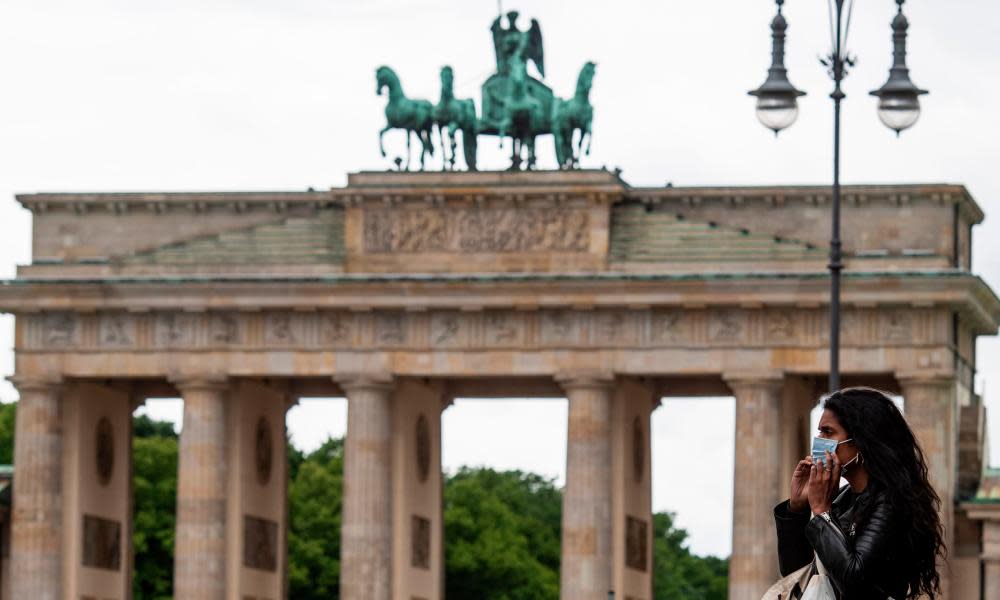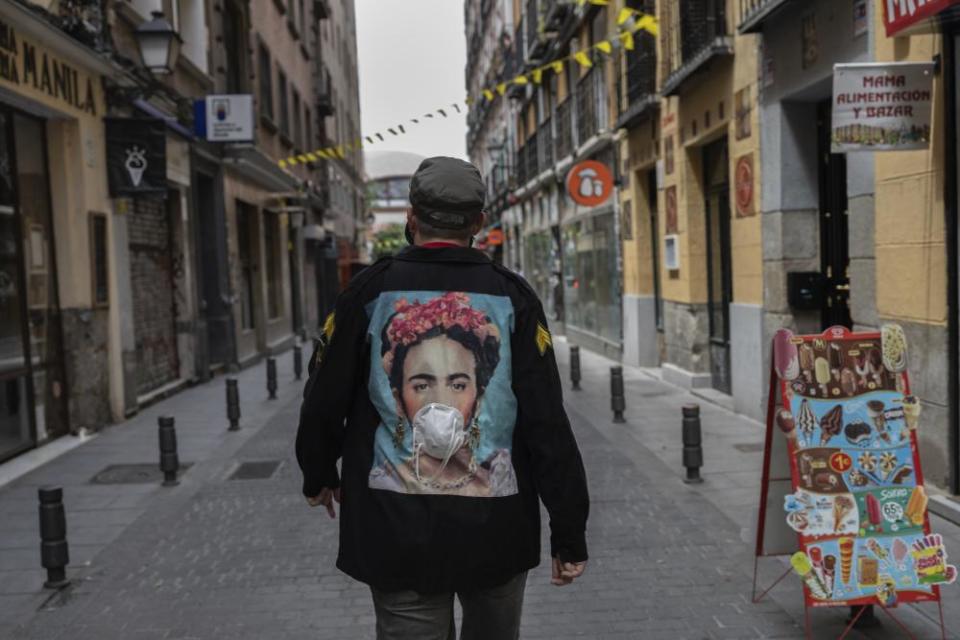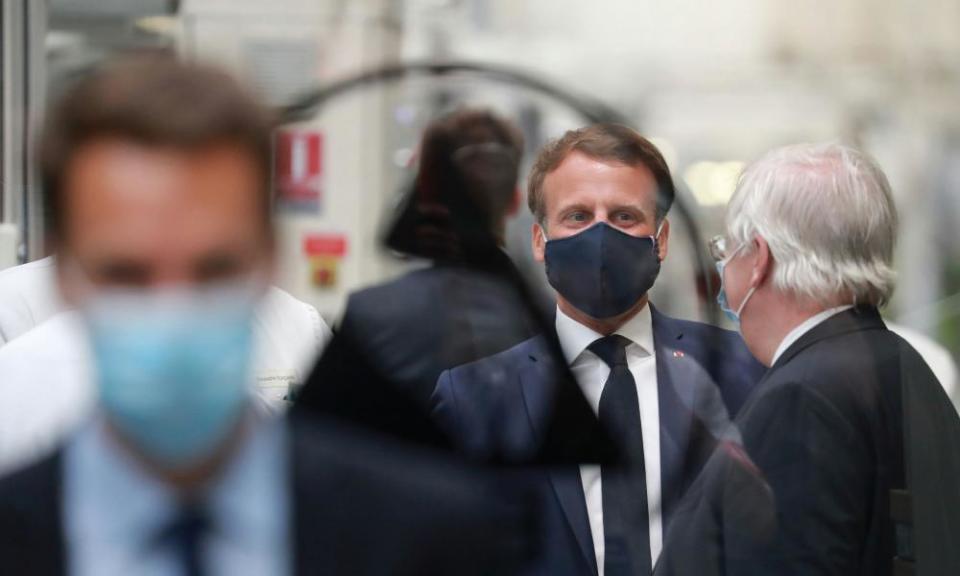Global report: Germany to relax travel curbs as Spain mourns Covid-19 victims

Denmark has made it easier for cross-border couples separated from their partners by lockdown to meet again, while Germany is expected to allow travel to 31 European countries from mid-June, as EU countries continued to lift coronavirus restrictions.
People living in Norway, Sweden, Finland and Germany can now visit partners in Denmark by signing a simple declaration rather than having to provide photos, phone records and other proof of a relationship, the Danish justice minister, Nick Hækkerup, said.
A government source in Berlin, meanwhile, told Reuters Germany was planning to lift a travel warning for its 26 fellow EU countries plus Britain, Iceland, Norway, Switzerland and Liechtenstein from 15 June providing infection rates remain under control.
Under the proposal, the general travel warning that has been in place since 17 March would be replaced by individual advice tailored to the spread of the pandemic in each country, potentially allowing Germans to holiday abroad this summer.
The World Health Organization (WHO) guidance on face masks has remained consistent during the coronavirus pandemic. It has stuck to the line that masks are for healthcare workers – not the public.
“Wearing a medical mask is one of the prevention measures that can limit the spread of certain respiratory viral diseases, including Covid-19. However, the use of a mask alone is insufficient to provide an adequate level of protection, and other measures should also be adopted,” the WHO has stated.
Nevertheless, as some countries have eased lockdown conditions, they have been making it mandatory to wear face coverings outside, as a way of trying to inhibit spread of the virus. This is in the belief that the face covering will prevent people who cough and sneeze ejecting the virus any great distance.
There is no robust scientific evidence – in the form of trials – that ordinary masks block the virus from infecting people who wear them. There is also concerns the public will not understand how to use a mask properly, and may get infected if they come into contact with the virus when they take it off and then touch their faces.
Also underlying the WHO’s concerns is the shortage of high-quality protective masks for frontline healthcare workers.
Nevertheless, masks do have a role when used by people who are already infected. It is accepted that they can block transmission to other people. Given that many people with Covid-19 do not show any symptoms for the first days after they are infected, masks clearly have a potential role to play, especially on crowded public transport as people return to work.
Sarah Boseley Health editor
The premiers of Germany’s 16 states are due to discuss with the chancellor, Angela Merkel, on Wednesday how to further relax restrictions aimed at containing Covid-19 after an initial relaxation appeared to have no significant impact on infections.
Control over lifting the measures seems to be increasingly slipping from Merkel’s grasp as more federal states announce unilateral steps to loosen restrictions, creating a patchwork of wildly varying rules on physical distancing within the country.
Winfried Kretschmann, the premier of Baden-Württemberg, said on Tuesday his state would allow seated public events with up to 100 people from 1 June. Other states
made similar announcements, with the mayor of Hamburg saying the the city state would soon reopen cinemas, open-air swimming pools and gyms.
There was no official confirmation of a report, citing a draft document, in the Bild tabloid that Merkel, under pressure from state premiers, had already agreed to ease some remaining rules – including on the numbers of visitors allowed in people’s homes – by 29 June instead of 5 July, as originally planned.

Spain will hold 10 days of official mourning from Wednesday for its nearly 27,000 Covid-19 victims, the government said, with flags on public buildings to be lowered to half-mast and an official ceremony presided over by King Felipe VI.
The prime minister, Pedro Sánchez, said it would be “the longest period of mourning in our democracy, in which we will all express our sorrow and pay homage to those who have died”. A government spokeswoman, María Jesús Montero, said eight in 10 victims were “older than 70 – those who helped build the country we know today”.
In France, the CNIL privacy watchdog approved a government-backed mobile phone app, StopCovid, designed to alert users if they have been in contact with an infected person. The voluntary app will keep track of users over a two-week period.
Privacy defenders were concerned it marked the first step towards a surveillance state, but the CNIL watchdog said the Bluetooth-based app met legal privacy requirements and contained multiple safeguards to prevent abuse. The French parliament is to vote on the matter on Wednesday and, if passed, the app could be available for download from this weekend.
Hungary aims to lift its heavily criticised state of emergency – which gave the country’s rightwing, nationalist prime minister, Viktor Orbán, the right to rule by decree indefinitely – on 20 June, its justice minister said.
The law, which Orbán said was necessary to curb the pandemic and its economic fallout, was condemned for failing to set a clear time limit on the state of emergency and for introducing potential prison sentences for people who spread false information.
Vladimir Putin said the epidemic had passed its peak in Russia and ordered a postponed second world war victory day parade to be held next month, with strict safety measures to be enforced to reduce the risk to participants.
The postponement of the 9 May parade to celebrate 75 years since the defeat of Nazi Germany was seen as a significant blow to the Russian president, who had lined up world leaders including China’s Xi Jinping and Emmanuel Macron of France to attend.

“According to experts, the peak can be considered passed,” Putin told the defence minister, Sergei Shoigu. “We will do it on June 24, the day the legendary historic victors’ parade took place in 1945.”
Russia has the third-highest number of cases in the world after the US and Brazil, but despite recording its highest daily death toll of 174 on Tuesday has apparently managed to keep fatalities far lower than in countries with similar rates of infection.
In other developments on Tuesday:
Coronavirus has infected nearly 5,530,350 people worldwide and killed more than 347,000, according to the Johns Hopkins University tracker.
A 27-year-old South Korean man was jailed for four months for twice breaking quarantine rules, the country’s first such prison sentence.
Indonesia said it was deploying 340,000 troops, including in the capital, Jakarta, to clamp down on rampant physical-distancing violations.
Thailand extended its sweeping state of emergency laws for another month until the end of June as the country starts to gradually reopen businesses.

 Yahoo News
Yahoo News 
